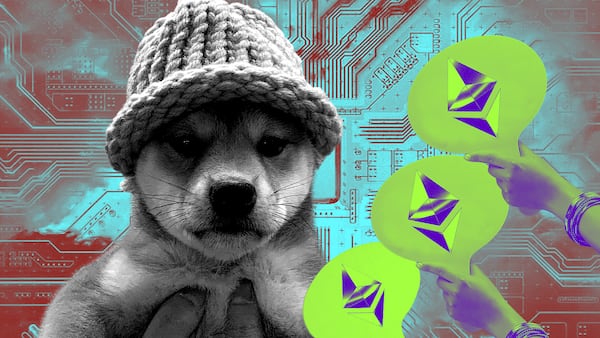- A developer's error in burning a significant portion of Slerf's supply resulted in a $10 million loss for investors.
- Despite the mishap, trading volumes surged, exceeding $7.1 billion.
- Slerf is now trading at a $479 million valuation amid a presale mania that saw more than 796,000 SOL raised across various memecoin launches.
Slerf, a memecoin launched on the Solana blockchain, stumbled into a major setback when its developer inadvertently destroyed a significant portion of the coin’s supply.
The mishap led to a total loss of $10 million, which was the collective investment of presale investors.
The developer’s attempt to address the situation unfolded on the social media platform X, where the developer openly admitted to the error of irreversibly burning the liquidity pool and tokens earmarked for a future airdrop.
The developer’s options were limited by the irreversible decision to revoke minting permissions, leaving no avenue for correction and leading to public apologies and expressions of remorse in an X Spaces discussion.
The incident occurred against a backdrop of a bustling weekend for Solana-based memecoins, and despite the error, the market reaction to Slerf was counterintuitive: The coin’s value saw a meteoric rise in the aftermath and was recently trading at $0.95, up from its launch price of $0.027, implying a $479 million fully diluted value.
Although it is unclear exactly why traders poured money into this memecoin following the error, there are some potential reasons.
As a result of the error, a significant amount of money was in the tokens liquidity pool. This makes it easier for larger traders to buy and sell the token without significant slippage.
Additionally, with other presales performing exceptionally well, traders may have viewed Slerf as another opportunity to strike it big.
Presale mania
Since March 12, according to pseudonymous user ZachXBT an onchain investigator, 33 presales have been conducted on Solana for memecoin launches. In total, they have raised over 796,000 SOL, or $149 million at current prices.
Slerf raised 54,583 SOL, all of which was burned, putting it in the fourth spot behind presales conducted by 0xDekadente, Dexter_Cap and miladymemecoin which raised 169,982 SOL, 159,782 SOL, and 91,746 SOL, respectively.
Update: Added a few more Solana presales from the replies that I missed and the total SOL raised is up to >796,000 SOL ($149.2M) from 33 presales. pic.twitter.com/O7dBqAunni
— ZachXBT (@zachxbt) March 19, 2024
A presale is when investors will send funds to a wallet address for a project in return for a prorated share of future tokens based on the amount sent.
As one example of the presale mania, the presale conducted by Darkfarms1 for the memecoin dubbed Book of Memes ignited a frenzy as the coin surged 1,291,399% in less than two days, rising to a market capitalisation of over $1.4 billion.
This sparked a new trend of presales like the one run by the Slerf team, largely driven by FOMO, or the fear of missing out on extraordinary price gains.
But, the presale trend comes with significant risks for investors.
Because the wallet address used to collect funds is owned by one person, that person has total control over how the funds are used. In the case of Slerf, things ended as badly as they could have with all of the investors’ funds burned.
Still, that didn’t stop traders from generating record-breaking volumes for the memecoin.
Slerf’s record-breaking volumes
Since the mishap, Slerf has been listed on a number of centralised exchanges such as KuCoin, HTX, and LBank, in addition to decentralised exchanges such as Raydium on Solana.
The volume generated by Slerf on Raydium has exploded, with over $7.1 billion traded since the memecoin was launched. To put that in perspective, Slerf now accounts for nearly 7.5% of the total volume generated by Raydium since it launched in May 2021.
That is more volume than Arbitrum, the largest Ethereum layer 2 network, did in the last seven days.
The burning of Slerf’s liquidity pool has unexpectedly turned the coin deflationary, with transaction fees effectively reducing its supply at a pace surpassing even that of well-known deflationary tokens like Ether and MKR.
Remarkably, this process saw about 1% of Slerf’s total supply eliminated within a single day, driven by extremely high trading volumes generating millions in transaction fees.
On centralised exchanges like HTX and Kucoin, the results were impressive, but not nearly as impressive as their decentralised counterparts.
Since listing Slerf, HTX has generated $5 million in volume and KuCoin generated $7 million in volume.
Some of these exchanges like HTX have even announced they will use all fees generated by the Slerf market to repay presale investors who lost everything.
Winners and losers
One of the larger winners in the mayhem over the last two days, first identified by lookonchain a wallet tracking account on social media, was this trader who spent 10,000 SOL to acquire 2.4 million SLERF at an average price of $0.81. They then went on to sell 1.4 million SLERF for $1.39 a piece.
They were able to take out their original 10,000 SOL investment while still holding around 1 million SLERF, before going on to buy 4,500 SOL more SLERF a few hours later.
But, the volatility wasn’t as friendly to everyone.
One trader, also first identified by lookonchain, acquired 1.4 million SLERF over five different transactions for a total of 7,503 SOL. They then went on to sell the SLERF over two transactions, recouping only 3,773 SOL.
That comes out to a loss of 3,730 SOL, or $675,000 with the price of SOL at $181.20.
Got a tip about DeFi? Reach out at ryan@dlnews.com.







